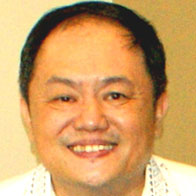 Was the final nail in the coffin of democracy in Malaysia hammered in with the passing of the National Security Council Bill 2015 (NSC) by the Dewan Rakyat on December 3, 2015? NSC gives the prime minister the power to declare any area in the country a “security area” with a simple majority in Parliament and suspend all fundamental rights and civil liberties in that area.
Was the final nail in the coffin of democracy in Malaysia hammered in with the passing of the National Security Council Bill 2015 (NSC) by the Dewan Rakyat on December 3, 2015? NSC gives the prime minister the power to declare any area in the country a “security area” with a simple majority in Parliament and suspend all fundamental rights and civil liberties in that area.
The question is not whether we need another law to deal with security issues, especially when we already have existing laws that can adequately handle it. The question is what guarantee is there that the usage of this law will not be abused the way other laws were, to quell dissent to the government. Wouldn’t it be fair to say that with NSC, Malaysia has shifted from a democracy to an autocracy, a dictatorship?
This move is reminiscent of the action of another Southeast Asian leader four decades ago, Ferdinand Marcos. Marcos was elected as the Philippines’s 10th president in 1965. During his first term, Marcos’s cabinet comprised mostly of technocrats and intellectuals as he focused on building infrastructures and industries. However for his second term, he began to build a personality cult around himself, surrounded himself with cronies and corruption was rampant.
Knowing that he is likely to lose in the next election, it was alleged that he staged a series of bombings and an assassination attempt on his defence minister, blaming it on the opposition and declared martial law. With that, he ruled for another fourteen years as a military dictator, reducing the Philippines from one of the most prosperous nation in Asia when he took over in the sixties to the ”sick man” of Asia.
Najib in his second term as prime minister, has gone back on the promises he made when he took office in 2009 to build a more inclusive and democratic society.
The draconian detention without trial law, the Internal Security Act was abolished in 2010 but in its place a whole slew of new laws were rushed through parliament the way NSC was passed. Many contain provisions for detention without trial like the Prevention of Crime Act, Prevention of Terrorism Act, Security Offences (Special Measures) Act and the Sedition Act were amended to stiffen its penalties.
Since the last general election in 2013, more than 200 people have been investigated and some charged under the Peaceful Assembly Act 2012, the Penal Code or one of the many laws. The implication of such selective persecutions is that anyone convicted with a fine of more than RM2,000 or jailed for more than a year, would be disqualified as a candidate in an election for 5 years.
With many key leaders of the opposition facing charges, one has to wonder if this is another strategy of the ruling coalition to disable the upper echelon leadership of the opposition even before the 14th general election is called.
With NSC, mega rallies like Bersih could easily be dealt with by declaring venues as “security areas” and the military called in to quash any attempts to proceed. A whole state like Penang or Selangor could be declared “security areas” and state government taken over. The pretext for such an action is so wide that the prime minister can declare a “security area” anywhere if in his opinion there is a serious threat to citizens, state, economy, key infrastructure or any other national interests.
Are we done for as a democracy? Is there even anything we can do as citizens to thwart NSC and negate the effect of political persecutions?
According to constitutional law expert, Dr Abdul Aziz Bari, before the NSC Bill 2015 can be gazetted as law, it has to go through debates in the Dewan Negara (Senate) and that could delay it by up to 12 months but it can’t throw the Bill out.
Next it will go to the Agong for his assent but the Federal Constitution was amended in 1994 by the then prime minister Tun Dr Mahathir Mohamad to state that any bill would automatically become law after 30 days even if the Agong refuses to give his assent. But Aziz said this was arguable as the 1994 amendment itself was never assented by the Agong and it could and should be argued in the court. If the Agong assents and the NSC Bill 2015 becomes law, then Malaysians should challenge its constitutionality in the Federal Court.
We can also stand in solidarity with those who are persecuted due to their political stand and in the exercise of free speech, expression, assembly and forming association. No one should be left to bear the cost of fighting for our common freedom. Contribute to their bail, fines and their living support of their families should they go to jail or lose their jobs.
We must resist for to resist is to win! – December 7, 2015.
* This is the personal opinion of the writer or publication and does not necessarily represent the views of The Malaysian Insider.


Comments
Please refrain from nicknames or comments of a racist, sexist, personal, vulgar or derogatory nature, or you may risk being blocked from commenting in our website. We encourage commenters to use their real names as their username. As comments are moderated, they may not appear immediately or even on the same day you posted them. We also reserve the right to delete off-topic comments